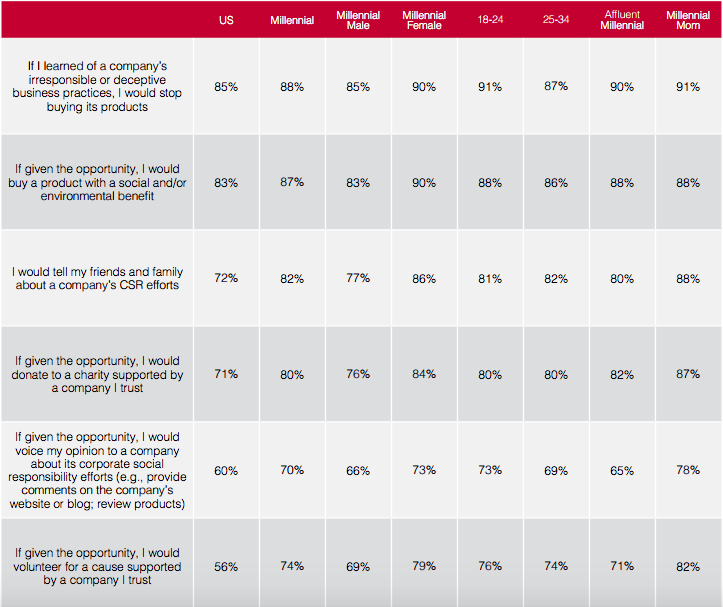Last January, Uber declined to participate in an organized taxi strike amidst the immigration ban protests at JFK airport. But instead of leading to a quick boom in business, the move upset consumers. Surge pricing has been turned off at #JFK Airport. Please be patient. We wanted people to know they could use Uber to get to and from JFK at normal prices, especially last night.” Uber founder Travis Kalanick offered pro bono legal advice and promised to compensate employees who lost earnings during the ban. For brands, it’s no longer business as usual. By ignoring the implications of a major protest, Uber offended customers and lost a considerable amount of business. Even if you’re not keen on taking policy advice from Oreo, it’s undeniable that voicing an altruistic opinion on social issues can make brands more favorable to consumers. Millennials want to buy products from brands that uphold their own ideal self-image, and this often means aligning oneself with issues and causes that matter to them. With so many reputable companies taking vocal stances on current issues, brands that don’t align with social movements will fall behind.
Last January, Uber declined to participate in an organized taxi strike amidst the immigration ban protests at JFK airport. In fact, the company even turned off surge pricing to and from the airport. But instead of leading to a quick boom in business, the move upset consumers. In a matter of days, Uber lost 200,000 customers, and people were boycotting the brand on Twitter with #DeleteUber.
Surge pricing has been turned off at #JFK Airport. This may result in longer wait times. Please be patient.
An Uber spokesperson tried to clarify the situation by saying, “We’re sorry for any confusion about our earlier tweet—it was not meant to break up any strike. We wanted people to know they could use Uber to get to and from JFK at normal prices, especially last night.” Uber founder Travis Kalanick offered pro bono legal advice and promised to compensate employees who lost earnings during the ban. But the damage was already done. The competing ride sharing app Lyft pledged $1 million to the ACLU in response, and Lyft downloads surged in the following days.
This example, perhaps more than any other in recent memory, shows the cost of trying to remain neutral. For brands, it’s no longer business as usual. By ignoring the implications of a major protest, Uber offended customers and lost a considerable amount of business. As with the Kendall Jenner Pepsi ad that premiered a few months later, it’s clear that aiming to please everyone in heated social or political moments no longer works.
According to a 2017 Edelman Earned Brand Study, half of consumers believe their favorite brands are more capable of solving the world’s issues than the government. In another study, Cone Communications found that 85 percent…

COMMENTS